16 Surprising Foods/Ingredients That Will Never Expire
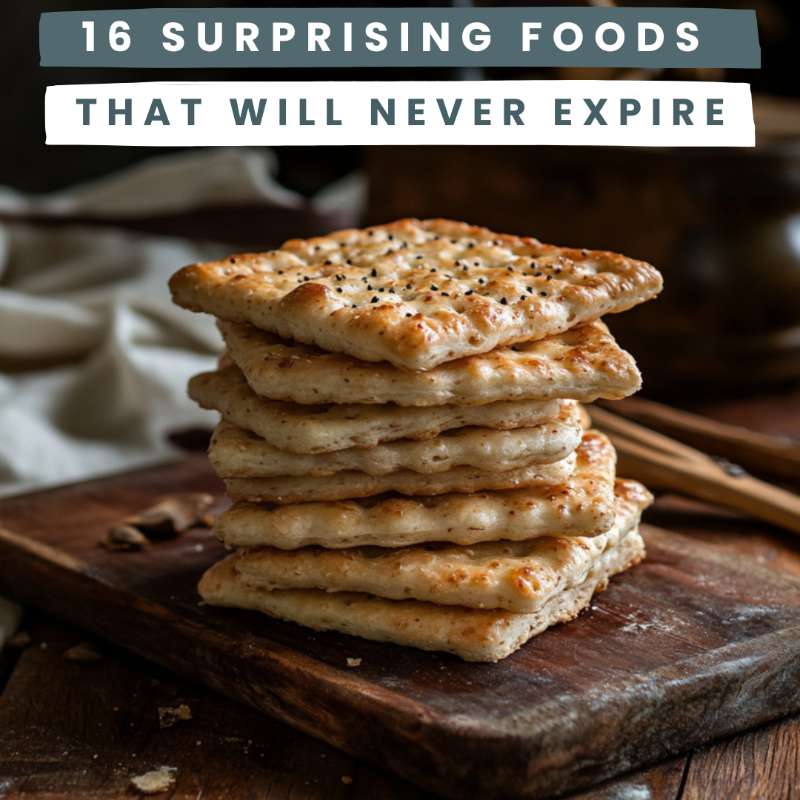
A lot of canned and dried foods have a long shelf-life, up to 5 years or more. However most foods, no matter how well packaged or stored, will eventually lose their nutritional value and spoil. There are, however, a handful of foods that can last forever. The following 16 foods have no expiration date and no shelf-life if stored properly. So by all means stock up on these items, doing so may mean nothing short of survival for you and your family during an emergency or food shortage.
Cornstarch
While its most commonly used to thicken sauces, stews, and syrups, cornstarch is a gluten-free forever food with a whole lot of other uses! To name a few, cornstarch can be used to eliminate odors, soothe rashes and sunburns, and also to detangle and clean hair. In a pinch, cornstarch can also be eaten straight out of the box or added to moist foods for extra nutrition.
Corn Syrup
As one of the most common sugar substitutes in the world, corn syrup is used in everything from baked goods to candy and soft drinks to canned foods. While regular sugar is also one of the forever foods, corn syrup can be a welcome changeup during an emergency when food variety is a luxury.
Dried Beans
Legumes are available in many easy to find and store forms. Pinto beans, lentils, black beans, garbanzos, and peas are just a few forms that can keep forever if sealed properly and stored in a cool dry place. In addition to just being a filling staple food, these legumes are packed with proteins, fiber, and carbs for energy. Dried beans can harden slightly as they age but will soften right back up during soaking or cooking.
Dried Pasta
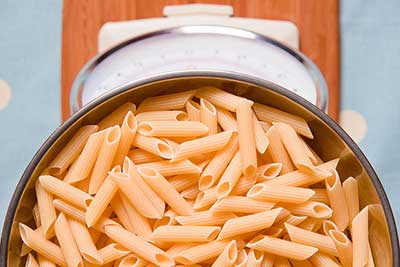
As long as it is sealed away from moisture and insects, dried pasta can literally last you a lifetime. Easy to prepare even during difficult times, this forever food is also available in a wide variety of forms and flavors, including buckwheat, rice, flour, egg, and many more. A great source of carbs and energy, dried pasta can be worth its weight in gold in an emergency.
Extracts
Provided you are getting quality, liquor-based extracts, vanilla, orange, almond, mint, just about any extract will keep forever. These can be used in a great many ways to flavor foods, drinks, baked goods, or even as a deodorizer.
Hard Liquor
Beyond possible use as a celebratory drink or painful situation reliever, liquor can also be quite valuable to stock up on for tough times. Plain liquors can be useful for medical reasons and sterilization, and even remain stable after being opened. If nothing else, a good supply of liquor could also be an invaluable commodity when it comes to bartering with neighbors.
Hardtack
A dense cracker made simply from flour and water, hardtack has been a dietary staple and supplement worldwide for years. While not the tastiest food, hardtack can absolutely be the difference between life and death in an emergency situation. Made and stored properly, hardtack can literally last for decades.
Herbs and Spices
While it may not mean the difference between life and death, a good collection of herbs and spices can certainly seem essential if you are ever forced to live on things like hardtack and dried beans for a long period of time. Everything from black pepper, to cinnamon, cumin, basil, oregano, and many more can be a tasty ingredient in survival food as well as supplying much-needed nutrients. As long as herbs are high-quality and stored properly, they can last a lifetime.
Instant Coffee
Aside from potentially being a welcome little boost to the nervous system, instant coffee can just be a warm and comforting drink during difficult times. Available in every form of packaging from single-serve packets to gallon cans, instant coffee is one of the most conveniently available forever foods. Green non-roasted coffee beans can also last indefinitely if stored properly, but have the obvious need to roast, grind, and brew.
Raw Honey
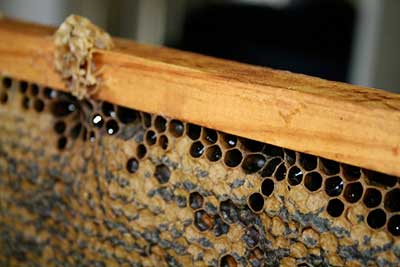
Raw honey will crystallize as it ages but will never spoil. Not only is honey a great natural sweetener, it can also be used to treat a number of health issues. The key is to check the label and only stock up on raw honey, as cooked varieties will eventually spoil.
Salt
Sea salt, table salt, and iodized salt will keep forever. Seasoned salts, however, often contain ingredients that can spoil in a year or so. While in time, salt can absorb moisture and become clumpy, it never actually spoils and can just be broken up and used as normal.
Soy Sauce
Thanks in large part to its sodium content, soy sauce will last forever if stored in a sealed container. Soy sauce is a tasty condiment to have on hand for direct use or in a variety of sauces. Similarly to spices, low-quality sauces can come partially contaminated and have a shortened shelf-life, so it’s advised to spend a little more initially on quality products.
Sugar

No matter how they are stored, white and brown sugars will both clump and harden over time. However, hardening does not imply spoilage! Just like honey, sugars can be a forever food that can sweeten up even the bleakest of survival situations.
Uncooked White Rice
Uncooked white rice can last forever as long as it is protected from moisture and insects. Packed with calories, carbs, and protein, rice can be a filling meal by itself or coupled with herbs and spices to boost the flavor and nutritional value.
White Distilled Vinegar
This forever food is useful for more than just pickling, canning, and preserving other foods. In fact, white vinegar can also be an effective antiseptic, cleaning agent, and deodorizer. Simply store in a cool dry place indefinitely.
Wine
Similarly to hard liquor, wine can be a highly valuable barter resource to have on hand not to mention a lively libation. Wine will keep indefinitely if stored in a cool, dark place and consumed within 3-5 days of opening. Only wine bottles with real corks will keep indefinitely, so no need to stock up on champagne or sparkling wines.
Proper storage requires positioning of the bottle so that the cork doesn’t dry out, as well as the proper environment. For best results, keep the bottles on their sides or tilted slightly toward the neck so the liquid is in constant contact with the cork. Store only in a cool, dry, and dark area. Bottles should be checked a few times a year to make sure corks aren’t overly dry and the bottles aren’t damaged.
 Home and Gardening Ideas At home and Gardening ideas we believe inspiring readers about homesteading, self sufficiency
Home and Gardening Ideas At home and Gardening ideas we believe inspiring readers about homesteading, self sufficiency
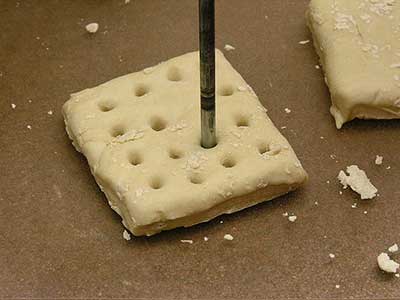
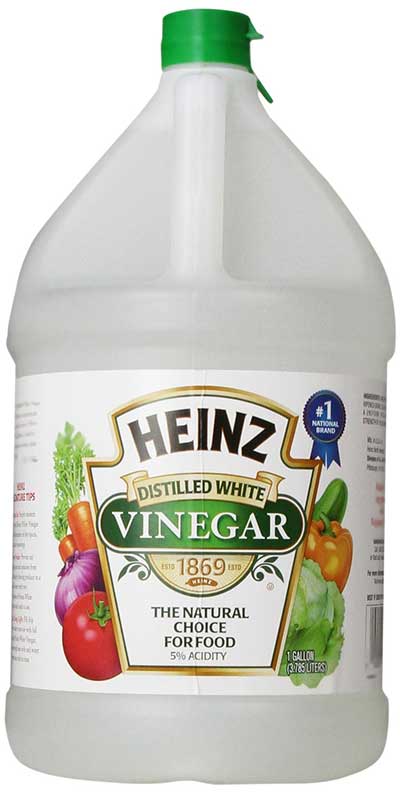






I did wonder why wine was stored on its side! Great list, would definitely stock up on liquor, honey, vinegar and beans!
To keep the cork moist and expanded so air doesn’t get in and spoil the wine.
Liked your website.
If wine is sealed with a cork, you keep the bottles on their sides to keep the cokes moist. Dry corks allow air to penetrate and that’s a problem. New screw tops and plastic corks are not affected.
I disagree about beans — I have used different varieties of longtime stored beans and when they get old, they never soften no matter how long you soak or cook them. If I remember correctly, you can grind them and use as a flour (have never done that because I have never been in the position to need to do it!)
True! Dried beans, even properly stored, will get to the point that they cannot be softened. It is best to use them within the first or second year after harvest. Making flour from uncooked beans can be problematic… it can be difficult to digest the flour, if not cooked long enough. Lentils, however, do store very well, as do a few other high protein items like dried split peas.
I can my dried beans – so much easier to use and it softens old beans.